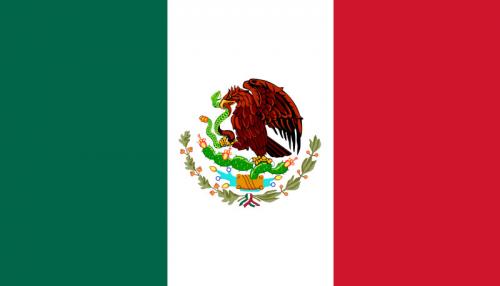The opportunity for Mexico to reconnect with Latin America
The choice made by Mexican governments to sign and continue the FTA with the US and Canada, has not only been harmful for Mexico, but has distanced it from Latin America.
- Opinión

The choice made by Mexican governments to sign and continue the Free Trade Agreement with the US and Canada, has not only been harmful for Mexico, but has distanced it from Latin America. It was an ideological option, founded on the false belief that being associated with economic powers would drive the Mexican economy to the levels of the more developed economies, pulling it out of poverty, inequality, misery and social exclusion.
The balance of the 20 years of this Treaty is evident. Mexico has been the great loser. Entering the ring as a lightweight in the face of a heavyweight such as the US, Mexico had everything to lose and in fact that is what happened. Even when their economy grew, Mexico has been one of the few countries of the continent that has not bettered the social situation of its people in this century.
Moreover, the choice of making her economy dependent on a single great market has been suicidal. Having more than 80% of her foreign trade with the US has made Mexico oscillate with the US economy, an economy that has ceased to be the dynamic economy that it once was. Mexico has been a source of cheap labour for the large US corporations, a secure market for the consumption of products from its northern neighbour, a provider of commodities at prices favourable for the US.
In addition to losing in this whole process, now Mexico pays an even greater price for having tied its economy to that of one country. The triumph of Donald Trump threatens Mexico with the worst omens: expulsion of part of the dozens of millions of Mexicans who work in the United States, taxes that will make it difficult to send of remittances to families in Mexico, in addition to the suspension of the Free Trade Agreement itself.
Mexico is in a state of panic, without having recovered full consciousness of the new reality nor articulating forms of defence. Up to now, discourse is the only response to the concrete threats that Trump promises to impose from the first days of his presidency.
The time has come for Mexico to stop looking upwards -- where the doors are closing -- and to turn to look below, towards Latin America, of which Mexico has always been a part, in spite of governments that only had eyes for their northern neighbour. Although now, two of the governments that promoted regional integration have governments that deny it, the coming years will be decisive for Latin America, and Mexico could be a determining part of this future.
It is perfectly possible, in the face of the disastrous results of the attempts to return to neoliberalism in Argentina and Brazil, that in coming years these countries will come to have governments that prioritise Latin American integration and not the Free Trade Agreements with the USA. Mexico could be an integral part of this movement that has brought so much to the continent.
The victory of Trump and the eventual rupture of NAFTA will allow Mexico to revise the mistaken choices of its governments and come to integrate itself fully into Latin America. The continent would be strengthened and Mexico would become stronger. She could count on an intense economic interchange with the countries of the continent, as well as getting closer to BRICS and its Development Bank.
Mexico would derive a new opportunity from the threats that face her, a new opportunity to reinsert herself in the world beyond any geographical fatality. To return to be a country fully integrated into Latin America.
13/12/2016
(Translated for ALAI by Jordan Bishop)
- Emir Sader, Brazilian sociologist and political scientist, is the coordinator of the Laboratory of Public Policy of the Universidad Estadual de Rio de Janeiro (UERJ).
Del mismo autor
- Hay que derrotar políticamente a los militares brasileños 07/04/2022
- China y Trump se fortalecen 04/03/2022
- Pandemia e Ucrânia aceleram decadência da hegemonia norte-americana no mundo 28/02/2022
- Pandemia y Ucrania aceleran la decadencia de la hegemonía norteamericana en el mundo 28/02/2022
- La anti-política generó la fuerza de extrema derecha 22/02/2022
- Las responsabilidades del PT 10/02/2022
- Estados Unidos, más aislado que nunca en América Latina 03/02/2022
- Memoria y olvido en Brasil 27/01/2022
- 2022: tiempos decisivos para Brasil y Colombia 05/01/2022
- Brasil: una historia hecha de pactos de élite 18/12/2021
